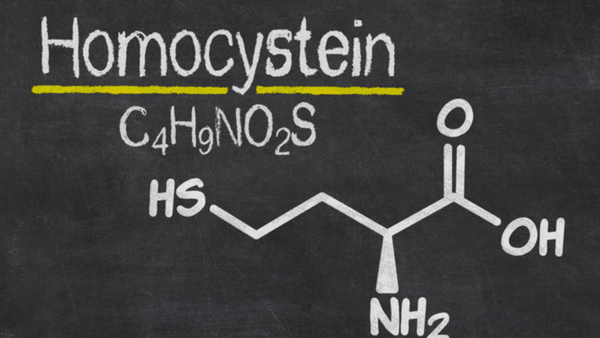A high homocysteine level increases the risk of cardiovascular diseases such as heart attack, stroke, arteriosclerosis and thrombosis. Homocysteine is also suspected of being involved in the development of dementias such as Parkinson's and Alzheimer's.
Homocysteine is a toxic metabolic product that the body must break down to render it harmless.
An increased homocysteine level is often due to a poor supply of B vitamins, which are needed to break down homocysteine.
Kidney problems can also lead to high homocysteine levels, as homocysteine cannot be excreted well via the kidneys when kidney function is impaired.
Certain medications, such as the Parkinson's drug L-Dopa, antiepileptics and cholesterol-lowering drugs can also increase homocysteine levels.
The following nutrients can help lower homocysteine levels:

B vitamins
The body needs some B vitamins to detoxify homocysteine. If there is a deficiency of these B vitamins, homocysteine levels increase. The most important ones here are vitamin B6, folic acid (vitamin B9) and vitamin B12 .
Vitamin B6 is needed for the conversion of homocysteine to cysteine.
Folic acid promotes the regeneration of the enzyme responsible for the breakdown of homocysteine.
With the help of vitamin B12, homocysteine is converted into the amino acid methionine.
It is well documented that B vitamins can lower homocysteine levels. However, the health benefits are not quite as well documented.
However, initial studies show that taking folic acid and vitamin B6 can reduce the risk of stroke. 1
In some studies, B vitamins have been shown to reduce the risk of nerve damage in diabetes. 2
Choline and betaine
Choline and betaine support the function of B vitamins. They provide methyl groups that are needed for the conversion of homocysteine into methionine. A good supply of choline and betaine is associated with low homocysteine levels.
In one study, choline in the form of phosphatidylcholine was able to lower homocysteine levels. 3
Something similar could be shown for betaine. 4
Because choline and betaine work so closely with B vitamins, many vitamin B complexes contain choline and betaine in addition to B vitamins.
Omega-3 fatty acids
Omega-3 fatty acids have anti-inflammatory and vascular protective effects. But that's not all. They can also lower homocysteine levels. 5 The mechanism is not fully understood, but scientists suspect that omega-3 fatty acids have a positive effect on methionine metabolism.
Conclusion: Too much homocysteine is dangerous
Homocysteine is a metabolic product that is not problematic in normal amounts. However, elevated homocysteine levels are dangerous and increase the risk of many diseases. B vitamins and other nutrients have critical functions in homocysteine metabolism.
WE HAVE GONE YOU A 10% VOUCHER FOR OUR
VITAMIN B COMPLEX , VITAMIN B12 AND OMEGA-3
PROVIDED AND HOPE TO BRING YOU JOY WITH IT.
SIMPLY COPY THE FOLLOWING COUPON CODE
AND ENTER IT AT CHECKOUT:
STOFFWECHSEL+V10
TO THE PRODUCTS

















